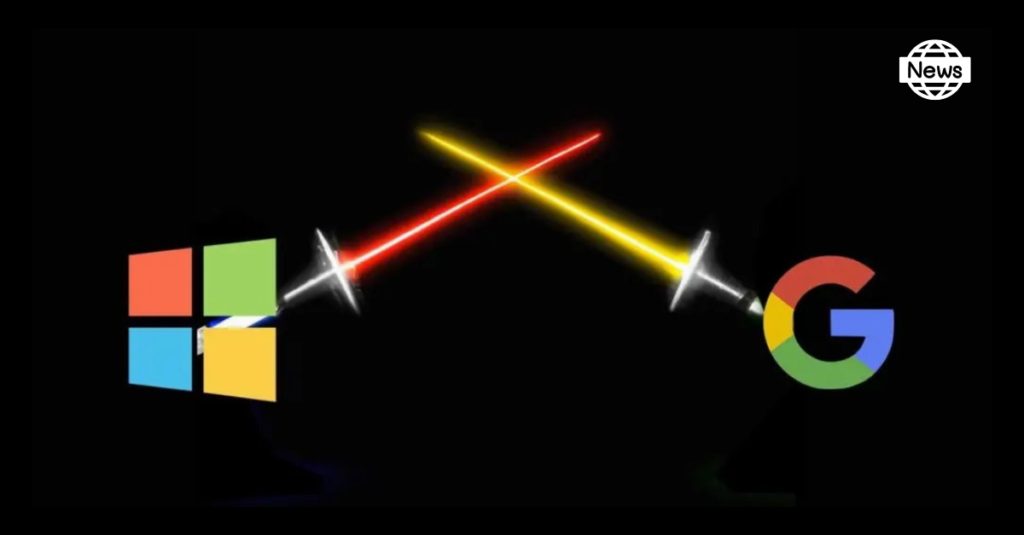Since OpenAI, a startup, released ChatGPT (Generative Pre-trained Transformer) in November last year, the competition to construct a generative artificial intelligence (AI) tool has had two of the greatest tech giants, Microsoft and Google, busy. Google has now released Bard, its own version of a chatbot. The announcement, on the other hand, faltered straight away. During the live demo, Google’s Bard AI made a factual error, undermining investor trust and causing Alphabet, Google’s parent company, to lose $100 billion in market value on Wednesday. Simultaneously, Microsoft revealed that ChatGPT will power its search engine Bing and browser Edge.
Although chatbots have existed in the past, OpenAI’s ChatGPT was the first easily available interactive tool driven by AI. This “natural language processing” programme is capable of gathering information from the internet and providing inputs in near real-time via a question-and-answer style. Although this technology generated considerable enthusiasm and anticipation for venture capitalists and investors, it has also raised various concerns about inaccuracy, misinformation or disinformation, and biases. The education industry, for example, is already dealing with plagiarism difficulties, with many students using this application to immediately answer problems and complete tasks.
The chatbot rivalry:
“The race begins today, and we’re going to move quickly,” said Microsoft CEO Satya Nadella, who set the tone for a chatbot battle by rebooting the Bing search engine last week. Bing will now be a tool that combines the functionality of an AI chatbot and a search engine.
Google’s Bard is another experimental conversational AI tool that uses a similar chatbot-like approach and claims to provide factual input on complex themes. It is based on the Language Model for Dialogue Application, or LaMDA, developed by the business. Even Chinese tech giant Baidu has completed internal testing for ‘Ernie Bot,’ a ChatGPT-style project. Sequoia Capital, has expressed interest in investing in generative AI tools like ChatGPT, claiming that this finding will set a new precedent for human and machine learning. “As investors, when we see a superpower in town and people are able to harness it, great companies get built, and we get to participate, invest, and make money with those, so we are absolutely intrigued by what this can become,” Anandamoy Roychowdhary, Surge Partner, Sequoia Southeast Asia, told ThePrint.
“The reason everyone is so enthusiastic about ChatGPT and generative AI isn’t because it’s especially brilliant or cogent; it’s just our first meaningful attempt at constructing something like this that isn’t human.” “This technology learns in the same way that humans do,” he noted. “We’ve discovered a massive language model that can learn from the internet, learn from everything we’ve done in the past, and just assist us grasp our own history in our own knowledge base.” This technology, however, is not new, with Google saying that its “transformer research project” in 2017 served as the foundation for many of the generative AI applications seen today.
“We re-oriented the company around AI six years ago — and why we regard it as the most critical method we can deliver on our mission: to organize the world’s knowledge and make it universally accessible and valuable,” said Alphabet Inc. CEO Sundar Pichai in a blog post. “Advanced generative AI and huge language models are catching people’s imaginations all across the world,” he continued. The Transformer Research Project investigated how language may be translated, interpreted, and understood from the large amount of public domain writings and information.
Upasna Dash, Founder of Jajabor Brand consultant, a communication and brand creation firm, says that while generative AI has been there for a long time, easy access is a crucial differentiation this time. “They’ve equalized the internet by putting it in a manner where you can ask a question and get a foundational level answer,” Dash explained. “I believe that is the most significant differentiator. It provides you with tailored knowledge and resources for any subject. It truly accomplishes the job of compiling the available analysis and ideas.” “Because we are used to seeking answers from numerous platforms using the Google search engine, the tool eliminates certain processes for the user,” she noted.
